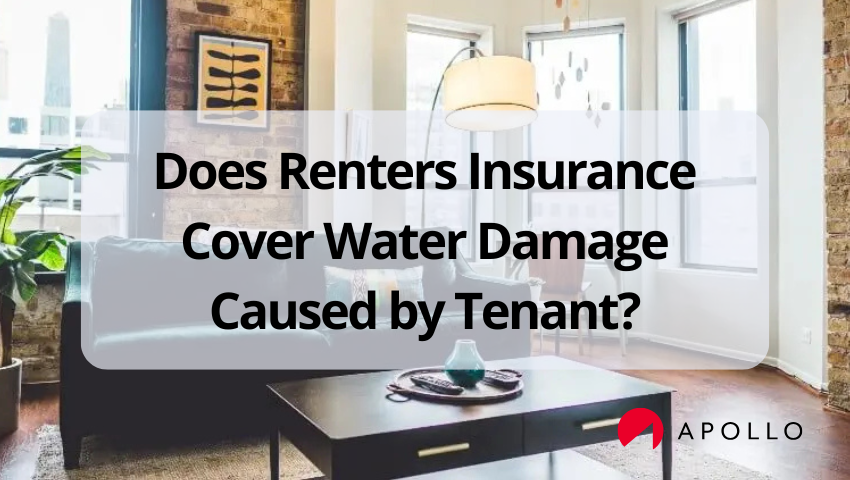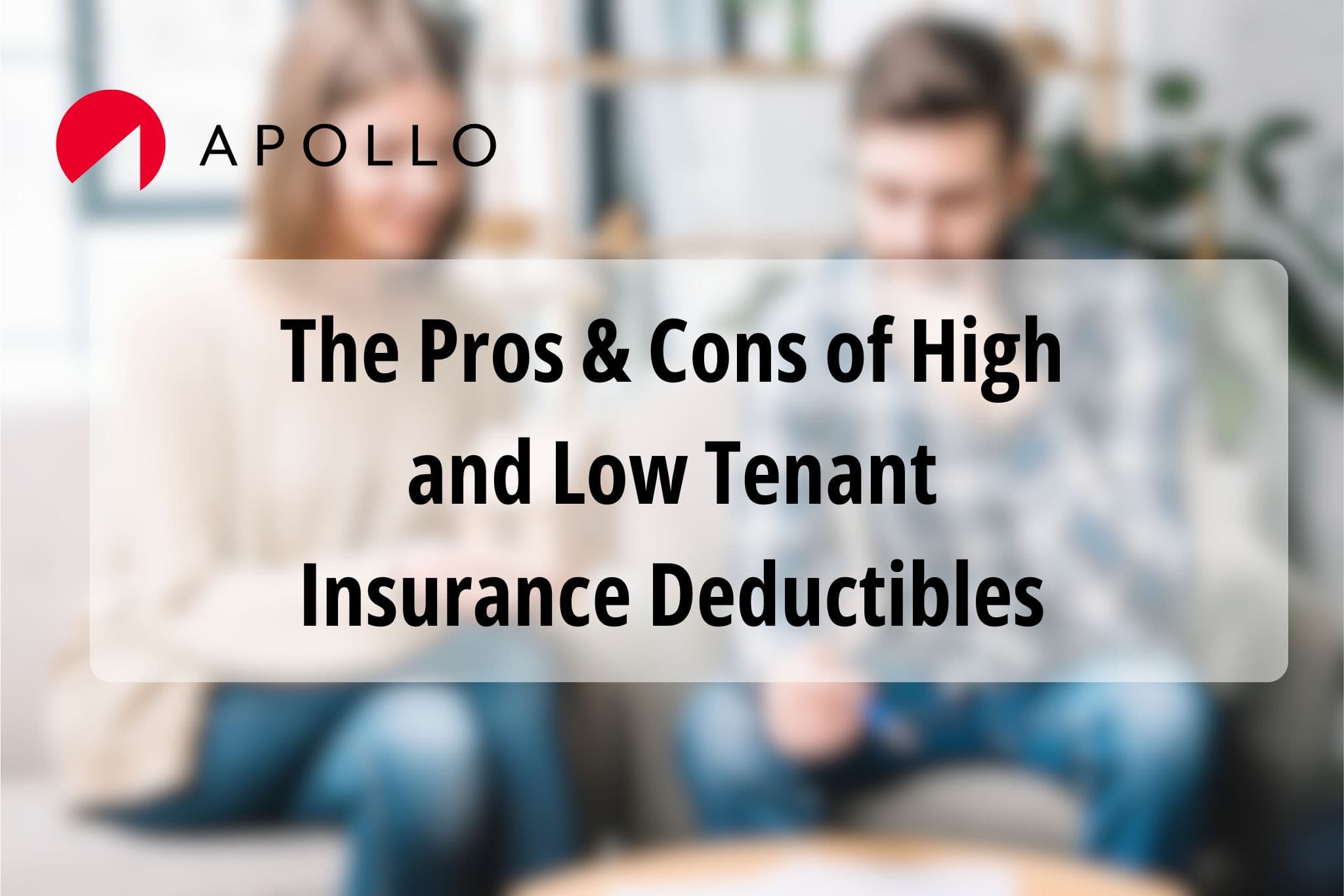Does Renters Insurance Cover Water Damage Caused by Tenant?

Written by Stephen Dyck
Water damage is stressful, messy, and often expensive, but the good news is that your tenant insurance may cover it, depending on the cause. Here’s what renters need to know to stay protected.
What Is Covered: Sudden, Accidental Water Damage
Most renters insurance policies cover sudden and accidental water damage, like a burst pipe, washer overflow, or toilet flood, provided it wasn’t due to negligence.
Examples of typically covered scenarios:
A pipe bursts during a cold snap, flooding your living room
Your washing machine hose snaps mid-cycle
A toilet overflows because of a clog you didn’t cause
If you're covered, your tenant insurance may:
Pay to repair or replace damaged belongings (furniture, electronics, etc.), minus your deductible
Cover Additional Living Expenses (ALE) if your unit becomes unliveable. This can include hotel stays, takeout meals, and even pet boarding
What’s Not Covered By Tenant Insurance?
Understanding exclusions is just as important:
Negligent or gradual damage: If you ignore a dripping pipe or delay reporting a leak, the insurer may deny your claim as negligence or wear-and-tear.
Flooding from natural events: Damage from rising rivers, storm surges, or heavy rain are typically excluded unless you buy separate flood coverage.
Sewer backups and sump pump failures: These require an endorsement not included in standard policies.
Mold from unaddressed water damage: Once a leak becomes mold, coverage often depends on whether it stemmed from a covered peril and was reported promptly.
Tenant vs. Landlord Coverage: Who Pays What?
Landlords are responsible for the structure, such as the walls, plumbing, flooring, etc. Your renters insurance covers:
Your personal property
ALE if you can’t live in your unit
Liability coverage if your actions cause damage to other units (e.g., flooding your neighbour)
Important Things To Know About Water Damage
Document everything promptly, as timestamped photos/videos of damage and leaks can be crucial for claims.
Notify your landlord and insurer immediately. Reporting delays can lead to denials.
Mitigate damage: shut off the water, move belongings, use towels. Insurers expect reasonable care.
Ask about endorsements: water-backup or sump-pump add-ons are relatively inexpensive and worth it if you live in a basement suite.
Consider flood insurance if you live in a flood-prone area. NFIP coverage typically has a 30-day waiting period.
FAQs About Water Damage and Tenant Insurance
Q: If I leave the tap running and it overflows, am I covered?
A: Yes, as long as it wasn’t intentional and you act promptly to mitigate damage .
Q: What about damage to the building itself?
A: That’s your landlord’s responsibility; your policy only covers your belongings and ALE.
Q: If sewer water backs up into my apartment, am I covered?
A: Not unless you purchased a specific back-up endorsement.
Q: Does ALE cover my hotel costs?
A: Yes, ALE, or Additional Living Expenses, can cover hotel and living costs if your home is uninhabitable due to a covered water event.
APOLLO is Canada’s leading provider of tenant insurance, designed specifically for renters and customizable to your lifestyle. Get your free quote in less than 2 minutes and we’ll send your policy documents right to your inbox.
Originally published August 21, 2023, updated January 28, 2026
Back to APOLLO MagazineTenant Insurance Starting at $13/month
The only tenant insurance provider with a Best Price Guarantee. Already have a policy or quote? We’ll beat the price. Guaranteed. Terms apply.
4.7 rating
Tenant Insurance Starting at $13/month
The only tenant insurance provider with a Best Price Guarantee. Already have a policy or quote? We’ll beat the price. Guaranteed. Terms apply.
4.7 rating
Relevant articles
Getting insured is as easy as 1 - 2 - 3

Tell us (very little) about yourself
Just tell us your address, your name, email and phone number. And that's it. We'll give you a price in less than a minute.

Pay online easily and securely
You can choose to pay monthly or save money by paying for the entire year in one easy payment.

Get your documents in your inbox - instantly
As soon as you complete your purchase, you'll find your proof of insurance and policy documents waiting for you in your inbox.
Get covered today - it couldn’t be easier
We’ve provided more than 1,000,000 quotes to Canadians just like you. Give it a try!


